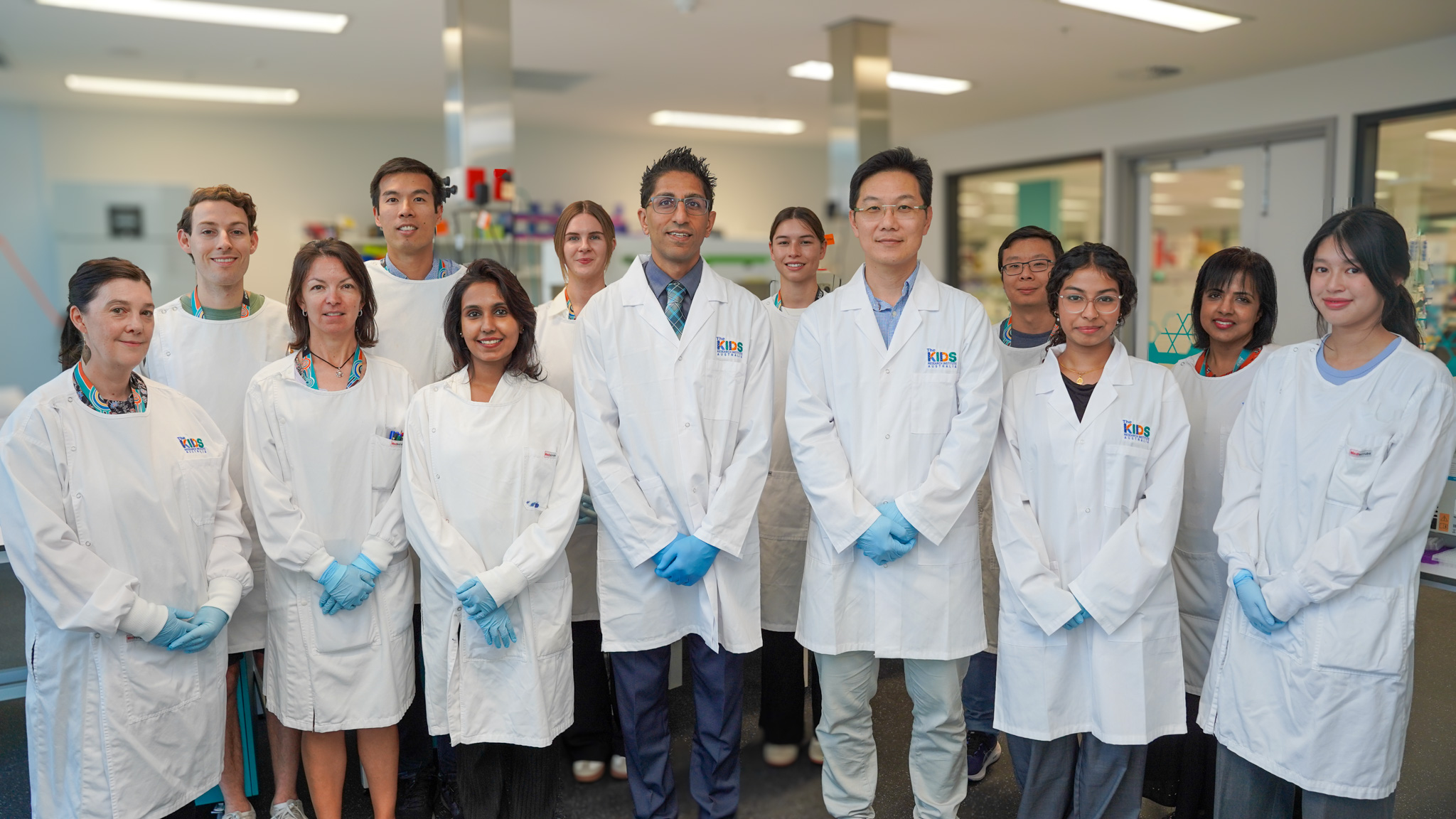Search
Research
A pre-clinical model of resistance to induction therapy in pediatric acute lymphoblastic leukemiaRelapse and acquired drug resistance in T-cell acute lymphoblastic leukemia (T-ALL) remains a significant clinical problem.
Research
Connective tissue growth factor is expressed in bone marrow stromal cells and promotes interleukin-7-dependent B lymphopoiesisHematopoiesis occurs in a complex bone marrow microenvironment in which bone marrow stromal cells provide critical support to the process through direct cell...
Research
Comparative drug screening in NUT midline carcinomaThe NUT midline carcinoma (NMC) is a rare but fatal cancer for which systematic testing of therapy options has never been performed.
Research
Pre-natal, clonal origin of t(1;11)(p32;q23) acute lymphoblastic leukemia in monozygotic twinsInvestigation of this rare mixed lineage leukemia cytogenetic abnormality aims to provide further evidence of the genetic changes that underpin this leukemia.
Research
Interactions between acute lymphoblastic leukemia and bone marrow stromal cells influence response to therapyThe cure rate for pediatric patients with B precursor acute lymphoblastic leukemia (pre-B ALL) is steadily improving, however relapses do occur despite...
Research
Western Australian children with acute lymphoblastic leukemia are taller at diagnosis than unaffected children of the same age and sexAcute lymphoblastic leukemia (ALL) is the commonest childhood malignancy in Australian children
Research
Effective adenovirus-mediated gene transfer into neural stem cells derived from human embryonic stem cellsHuman embryonic stem cell-derived neural stem cells (hESC-NSCs) are an attractive cell type for studying

The main aim of our Leukaemia Translational Research Team is to test innovative therapeutic approaches, with a focus on clinical translation of this knowledge, to improve the outcomes of children suffering from leukaemia.
Research
Targeting DYRK1A: a key player in Down syndrome LeukaemogenesisSébastien Malinge PhD Laboratory Head, Translational Genomics in Leukaemia, Senior Research Fellow (University of Western Australia), Adjunct Senior
Research
Therapeutic opportunities from dissecting the pre-B leukaemia bone marrow microenvironmentLaurence Rishi S. Sébastien Cheung Kotecha Malinge BPharm (Hons) MBA PhD MB ChB (Hons) MRCPCH FRACP PhD PhD Co-Head, Leukaemia Translational Research
